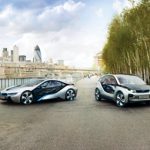Quality really does pay

We have all heard the expression that “quality pays”. But does it really? CHARLEEN CLARKE insists that this is true, after examining the Hyundai model.
We all know the Hyundai brand. It is considered kind of cool. A bit like the latest app.
However that certainly was not always the case. As Alan Ross, Hyundai Automotive South Africa’s managing director, points out, the company was once faced with huge (and potentially insurmountable) quality challenges.
But let’s go back a couple of decades – to 1967, when Hyundai was conceived. The company’s origins date back to the Hyundai Engineering & Construction Co, which was founded after the Second World War. “Hyundai Motor Company came into creation in 1967. The motor company thrived and became a completely separate enterprise in 1998,” Ross tells SHEQ MANAGEMENT.
But the company’s growth was not without its problems – and one of the most significant was the issue of quality. As Ross recalls, Hyundai entered the United States’ (US) market in 1986 with a single model, the Excel, which sold for $4 995 – a price that captivated bargain-minded Americans so entirely that Hyundai set a first-year record by selling 126 000 cars.
In its second year in business, Hyundai adopted the slogan “Cars that make sense” and set another record, selling 264 000 Excels.
But, in its haste to grow, Hyundai made two near-fatal errors. “It made fragile cars and it sold them to non-creditworthy customers. When the cars were repossessed, their quality was so poor that they were worth less than the outstanding loans,” Ross says.
This gave Hyundai the reputation as a cheap and nasty brand that offered a comprehensive warranty to make up for mechanical shortcomings.
Fast forward to 2013 and everything has changed. How? “Hyundai’s success reflects a shift in attitude that occurred over a decade ago. In the 1990s, the company was more interested in how many units it could sell than in the quality of the vehicles. That changed in 2000, when founder Chung Ju-Yung passed corporate leadership to his son, Chung Mong-Koo. According to company teachings, the younger Chung decreed that Hyundai would henceforth concentrate on quality, and not only volume. With the chairman behind the push, and with its characteristic intensity, Hyundai went after quality improvements with a vengeance,” reveals Ross.
Hyundai benchmarked Toyota, the industry’s quality leader at that time, to understand its processes. “It made quality a cross-functional responsibility, with involvement from procurement, manufacturing, finance, sales and marketing,” reveals Ross.
The Korean giant furthermore enlisted outside suppliers and put them together with designers and engineers to solve problems before they even occurred. “Quality oversight meetings, which had been poorly attended, became must-go events after chairman Chung began to personally attend the twice-monthly gatherings,” notes Ross.
Chung attributes his company’s success to the investment it has made to improve its products. He believes that Hyundai’s quality, as well as its technology, “are head to head with Toyota at this moment”. He told Fortune magazine recently: “We are monitoring what is going on with Toyota all the time.”
Ross believes that Hyundai’s quality successes are a testament to the power of focused management and aggressive goals. “In 2001 Hyundai ranked 32nd out of 37 brands in JD Power’s study of new vehicle quality after 90 days of ownership – which was close to the bottom. Chung asked JD Power what the company should do to improve and he was told to listen to his customers. That’s what the company did – with startling results.
By 2004, it rated seventh, by 2006 it occupied third spot and in 2009 it was fourth. This resulted in Hyundai displacing Toyota and now being ranked as the highest mass market brand in the world,” Ross says. And last year the Hyundai Genesis received the lowest number of problems per 100 vehicles among midsize premium cars in the proprietary JD Power Vehicle Dependability Study.
Now, as Ross points out, Hyundai is targeting Volkswagen as well – not just Toyota. “Years ago Toyota used to say that Hyundai was the company it feared most. Today those fears have grown into a nightmare,” he notes. For good reason: today Hyundai controls five percent of the US market, it is massively successful in the Chinese market, and Hyundai and Kia are also attacking the European market, beating many established European brands at their own game (and in their own backyard nogal). The company sold 4,06 million vehicles globally in 2011.
Hyundai is also the world’s fastest growing automotive brand. And it’s largely thanks to quality.



